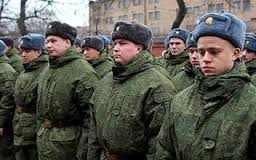Christmas Price Freeze, Russian Food Embargo, Cheap Schengen Visas – Belarus State Press Digest

Belarus rejects accusations from Ukraine officials claiming that it has joined the Russian food embargo against Ukraine. Visa facilitation between the EU and Belarusan is likely to succeed, but the extent of the programme will depend on Belarus' commitment to reform.
The Belarusian agricultural sector suffers from lobbyists who constantly force the government to raise tariffs and prices. Hightech Park becomes one of the most profitable enterprises in Belarus, moving ahead of the industrial giants. Men who cannot serve in the army due to religious reasons will be given the opportunity to participate in an alternative civilian service starting from 2016.
All of this and more in the new edition of the Belarus State Press Digest.
Economy
The government bans price hikes at Christmas time. The Ministry of Trade ordered the local authorities and state-owned industry to deter deliberate price hikes during the Christmas and New Year holidays, Belarus Segodnia reports. The government is trying to protect citizens from dodgy traders, who use the holiday shopping frenzy to make big profits. Price regulation remains one of the authorities' instruments to show their concern for social equality, a policy which international creditors have always been critical of.
 Furniture industry cluster will appear in Smarhoń district. Belarus' Segodnia covers the investment forum which took place in Smarhoń, Hrodna region. The forum gathered around 50 Belarusian and foreign businessmen who deal with furniture. The event organisers – Kronospan company, Hrodnainvest free economic zone and the local authorities – plan to create a cluster with tax and duty privileges for export-oriented furniture businesses. The authorities are ready to offer 520 hectares of land for the cluster.
Furniture industry cluster will appear in Smarhoń district. Belarus' Segodnia covers the investment forum which took place in Smarhoń, Hrodna region. The forum gathered around 50 Belarusian and foreign businessmen who deal with furniture. The event organisers – Kronospan company, Hrodnainvest free economic zone and the local authorities – plan to create a cluster with tax and duty privileges for export-oriented furniture businesses. The authorities are ready to offer 520 hectares of land for the cluster.
Belarusian Hightech Park will make a superprofit of $800m this year. The director of the Park Valier Capkala tells Soyuznoye Veche the history of the park's success. Companies in the park make a larger contribution to GDP than the industrial giants MAZ, BelAZ, MTZ and Gomsielmaš put together. The administration of the park receives 1% of the profit, translating into $8m this year. The park plans to open a branch in the city of Hrodna. While previously a brain drain of IT specialists was widespread in Belarus, today the park management has created comfortable conditions for young workers. Ten of the park's companies this year appeared on the Software 500 global rating.
Agricultural producers suffer from other institutions' lobbyists. Sieĺskaja Hazieta publishes an interview with Sluck district chief executive Andrej Jančeŭski on problems in the agriculture sector. The official criticizes the management system of the sector in Belarus and accuses many state agencies of lobbying their interests, thus damage agricultural production.
Processing enterprises, machine builders, energy producers, and pubic utility organisations always lobby for an increase in prices and tariffs. Meanwhile, the purchase price of agricultural production has remained at the same level for years. This is because village workers do not receive the same kind of protection from the government. The Ministry of Agriculture, on the contrary, accuses the villagers of carelessness, mismanagement, and a lack of initiative.
Politics
Belarus does not support Russia's food embargo against Ukraine. Narodnaja Hazieta criticises the rhetoric of Ukrainian officials who claim that Belarus has joined the Russian food embargo. Moscow plans to impose the embargo on Ukraine in 2016, when a free trade zone will become effective between Ukraine and the EU. Belarus has recently introduced obligatory sanitary inspections for imported products as part of Eurasian Economic Union law, which some voices in Ukraine have dubbed “joining Russian sanctions against Ukraine”.
The Belarusian side explains that the regulation has been introduced for all imports regardless of the country of origin. Director of the Centre for European Integration Jury Šaŭcoŭ opines to the newspaper that Ukrainian officials chose this confrontational rhetoric because their country remains in deep crisis and they are trying to use all means possible to defend their positions.
Belarusians will get cheaper Schengen visas. Respublika newspaper discusses the upcoming facilitation of a visa regime between Belarus and the EU, which the two sides are currently negotiating. Today, Belarus stands 67th in the freedom to travel rating and remains the last country to pay a visa fee of 60 euro in Eastern Europe.
According to representative of the Warsaw-based Stefan Batory Foundation Krzysztof Mrozek, the degree of facilitation has a lot to do with the political will of the EU partner. A mutual understanding between countries could bring Belarusians a reduction in visa costs, while a more comprehensive reform of institutions and mutual commitments could pave the way for a visa-free agreement.
Society
 Belarusians will be able to work in an alternative civilian service instead of the army. Znamya Yunosti explains the details of the new law on Alternative Civilian Service, which will become effective in 2016. Currently young men who cannot serve in the army because of religious creed have no right to refuse conscription.
Belarusians will be able to work in an alternative civilian service instead of the army. Znamya Yunosti explains the details of the new law on Alternative Civilian Service, which will become effective in 2016. Currently young men who cannot serve in the army because of religious creed have no right to refuse conscription.
The alternative service will include working in healthcare, social services, public utilities, the agriculture and wood industries, construction and road building. Alternative servicemen will have no right to do business or receive income from other sources. Those with higher education will serve two years and those who do not will serve three, compared with 1 and 1.5 years for those who serve in the army. The alternative servicemen will get a monthly salary of only $120.
Vocational education in the Viciebsk region experiences a difficult time. Vitsebskiye Vesti newspaper analyses trends in the educational sector. The population is declining and working professions are becoming unpopular among the youth, while higher education is more and more pervasive. Moreover, Belarusian industries are experiencing problems and cannot provide all graduates with jobs. The authorities have started to reorganise the vocational education system, and to date the number of schools in the region has reduced by 30%. Currently around 13,000 people study in the vocational schools of Viciebsk region, while five years earlier 18,000 did so.
The State Digest Digest is based on review of state-controlled publications in Belarus. Freedom of the press in Belarus remains restricted and state media convey primarily the point of view of the Belarusian authorities. This review attempts to give the English-speaking audience a better understanding of how Belarusian state media shape public opinion in the country.




